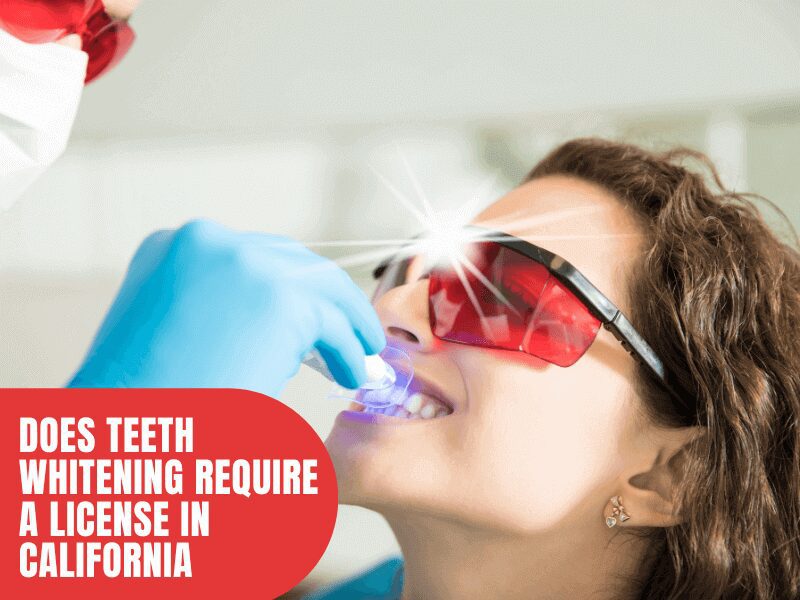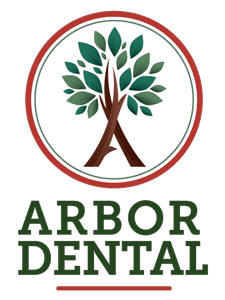The teeth whitening industry in California continues to experience rapid growth, with consumers increasingly seeking professional whitening services. However, understanding whether teeth whitening requires a license in California remains a crucial question for aspiring practitioners and business owners. The state’s regulatory framework establishes specific requirements that vary significantly depending on the type of practitioner, the treatment methods used, and the chemical concentrations involved. These licensing requirements matter deeply for both service providers seeking legal compliance and consumers who want safe, professionally administered treatments.

| Aspect | Requirement | Details |
| Dental Professionals | License Required | Dentists and dental hygienists must hold valid CA licenses |
| Non-Dental Practitioners | Varies by Method | Depends on the whitening technique and the chemicals used |
| Medical-Grade Treatments | License Required | High-concentration bleaching requires dental supervision |
| Training/Certification | Recommended | While not always legally required, professional training is advised |
| Business License | Required | Standard business licensing is needed regardless |
California’s Legal Framework for Teeth Whitening
Dental Practice Act Requirements
California’s Dental Practice Act establishes the foundation for determining when teeth whitening services fall under professional dental regulations. The law defines the “practice of dentistry” as any procedure involving the diagnosis, treatment, or correction of dental conditions affecting oral health. When teeth whitening procedures use chemical agents above specific concentration levels or require assessment of dental health conditions, they typically fall under these dental practice regulations.
The legislation creates several exceptions and gray areas, particularly regarding cosmetic teeth whitening services that use lower-concentration products. These distinctions become critical for practitioners seeking to understand compliance requirements without overstepping legal boundaries.
Professional Licensing Requirements for Does Teeth Whitening Require a License in California
Licensed dental professionals in California include dentists who complete accredited dental school programs and pass state board examinations, plus dental hygienists who complete specialized training programs. Each license type carries a specific scope of practice limitations that directly impact teeth whitening service delivery.
Dentists possess the broadest authority to perform all types of teeth whitening procedures, including high-concentration treatments requiring medical supervision. Dental hygienists can perform specific whitening procedures under appropriate dental supervision, while dental assistants require direct oversight for any whitening-related tasks.
Non-Dental Teeth Whitening Services
Cosmetic vs. Medical Classification
The distinction between cosmetic enhancement and medical treatment becomes pivotal in determining licensing requirements. California regulations generally classify teeth whitening as cosmetic when using FDA-approved, lower-concentration products that don’t require assessment of underlying dental conditions.
Chemical concentration thresholds play a decisive role in this classification. Products containing hydrogen peroxide concentrations below 6% or carbamide peroxide below 18% typically fall into cosmetic categories, while higher concentrations may require dental supervision. FDA regulations on whitening products provide additional guidance for practitioners navigating these concentration limits.
Compliance and Legal Considerations
Regulatory Enforcement
The California Dental Board maintains oversight authority for teeth whitening services that cross into dental practice territory. The board actively investigates complaints regarding unlicensed practice and can impose significant penalties including cease-and-desist orders, financial penalties, and potential criminal charges for serious violations.
Consumer protection measures include requirements for clear disclosure of practitioner qualifications, treatment limitations, and potential risks associated with whitening procedures.
Business Requirements
Regardless of whether teeth whitening requires a license in California, all practitioners need standard business licensing from their local jurisdiction. These requirements include business registration, tax identification numbers, and compliance with local zoning regulations.
Insurance considerations become particularly important given potential liability risks. Professional liability insurance may be required or strongly recommended depending on the scope of services offered. Safety requirements often include proper ventilation, sanitation protocols, and emergency response procedures.
Best Practices for Practitioners
Professional Development
Recommended training and certification programs help practitioners maintain high standards regardless of legal requirements. Organizations like the American Board of Cosmetic Dentistry and various cosmetic training institutes offer comprehensive education programs covering safety protocols, product knowledge, and client consultation techniques.
Continuing education opportunities allow practitioners to stay current with evolving regulations, new product developments, and advanced treatment techniques. Professional associations provide valuable networking opportunities and regulatory updates.
Client Safety and Documentation
Informed consent procedures should clearly outline treatment expectations, potential risks, and practitioner qualifications. Health screening protocols help identify clients who may not be suitable candidates for specific whitening treatments due to dental conditions, sensitivity issues, or medication interactions.
Comprehensive record-keeping requirements protect both practitioners and clients by documenting treatment details, client responses, and any adverse reactions. These records become essential for regulatory compliance and potential liability protection.
Conclusion
Understanding that teeth whitening requires a license in California requires careful consideration of multiple factors including practitioner qualifications, treatment methods, and chemical concentrations used. While licensed dental professionals must maintain their professional credentials for all whitening services, non-dental practitioners may operate legally under specific circumstances involving lower-concentration, cosmetic-only treatments. However, all practitioners must obtain appropriate business licensing and should strongly consider professional training regardless of legal requirements. For aspiring practitioners, consulting with regulatory experts and legal professionals ensures full compliance with California’s evolving teeth whitening regulations. Consumers benefit from choosing practitioners who prioritize safety, proper training, and transparent communication about their qualifications and service limitations.
Frequently Asked Questions
1. Can I offer teeth whitening services in California without a dental license?
Yes, you can offer certain teeth whitening services without a dental license, but only if you use FDA-approved cosmetic whitening products with lower concentrations (typically under 6% hydrogen peroxide or 18% carbamide peroxide) and do not diagnose or treat dental conditions. You’ll still need proper business licensing and should obtain professional training for safety and liability protection.
2. What happens if I provide unlicensed teeth whitening services in California?
Providing unlicensed teeth whitening services that fall under dental practice can result in substantial fines ranging from thousands to tens of thousands of dollars, immediate cease and desist orders, and potential criminal charges for repeated violations. The California Dental Board actively enforces these regulations to protect consumers.
3. Do I need special insurance for teeth whitening services in California?
Yes, beyond general business liability insurance, you should obtain professional indemnity protection, product liability coverage for whitening materials, and specialized coverage for potential dental complications. This is especially important given the risk of sensitivity reactions or uneven results.
4. Can dental hygienists perform teeth whitening independently in California?
No, registered dental hygienists in California cannot perform teeth whitening procedures as sole practitioners. They must work under the general supervision of a licensed dentist when providing any whitening or bleaching services, according to the Dental Hygiene Board of California.
5. What training do I need to offer teeth whitening in California?
While professional training isn’t always legally required for cosmetic whitening services, it’s highly recommended for safety, liability protection, and service quality. Look for certification programs that cover chemical safety, client consultation techniques, equipment protocols, and business compliance.
6. Is teeth whitening considered a medical procedure in California?
It depends on the method and concentration used. High-concentration bleaching treatments are considered dental procedures requiring licensed supervision, while lower-concentration cosmetic treatments may fall under beauty services. The 2014 FDA classification of many whiteners as “cosmetics” expanded opportunities for non-dental practitioners.
7. How often do teeth whitening regulations change in California?
Teeth whitening regulations can evolve as the industry grows and safety standards develop. Practitioners should stay informed through continuing education, professional associations, and regular consultation with regulatory bodies to ensure ongoing compliance with current requirements.



